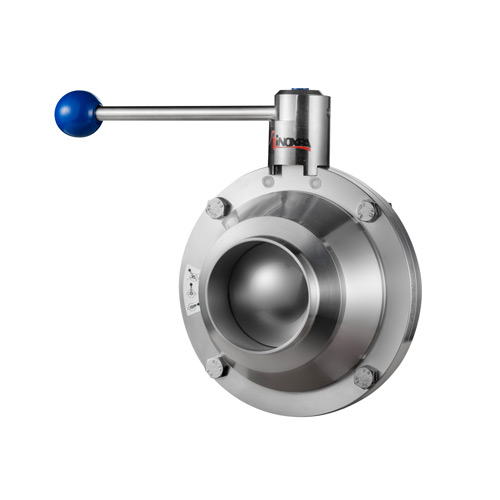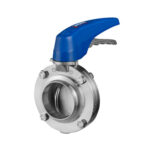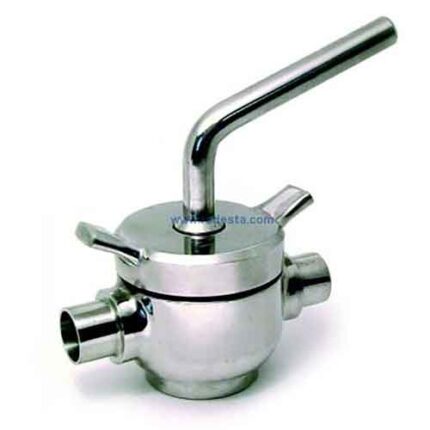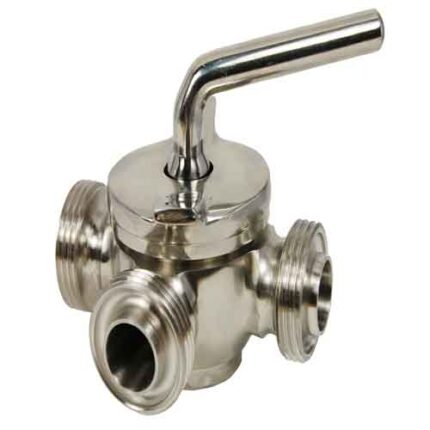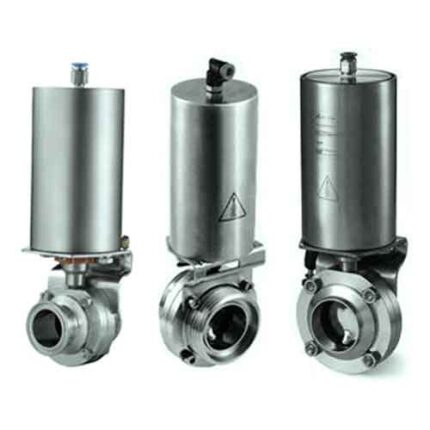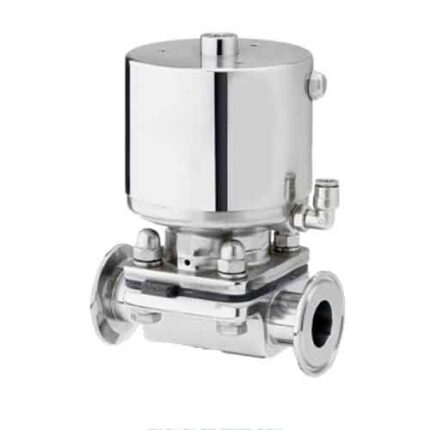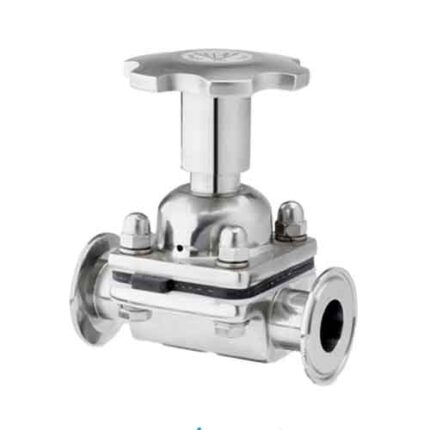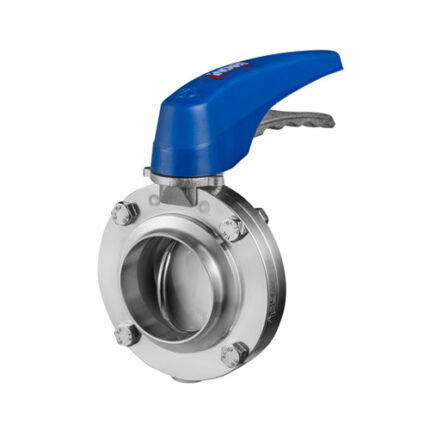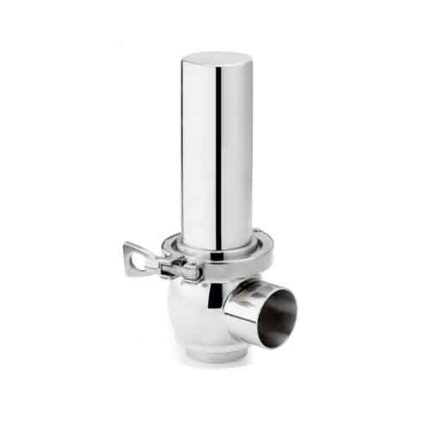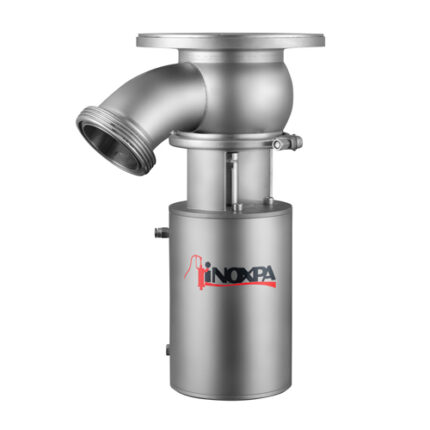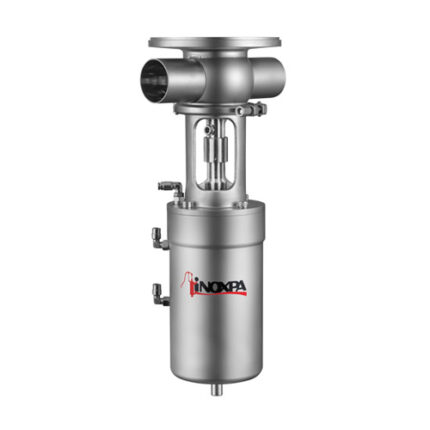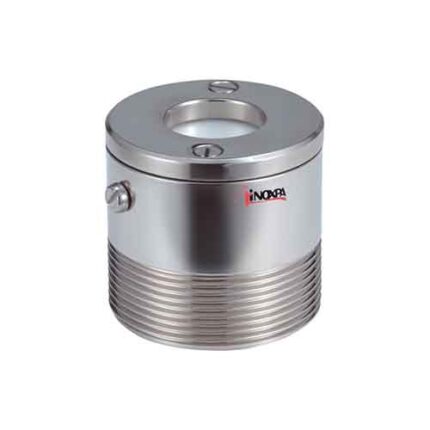Hygienic Ball Valve
A Hygienic ball valve is a type of valve that controls flow along the line in a perforated and rotating sphere. These are the valves that work with the principle of moving the arm on the ball valves by 90°. Flow occurs when the perforated part on the Sphere in the ball valve is brought to the position to be in the same direction as the flow direction. Flow is restricted by moving the lever 90° from this position.
A Hygienic ball valve is an on/off valve that controls the flow of liquid or gas with a rotating ball with a hole in the middle.
How Does Ball Valve Work?
By rotating the ball a quarter of a turn (90 degrees) around its axis, the medium can flow through it or block it. Even when these long-lasting valves are not used for a long time, they keep the system safety at the highest level by providing a reliable seal throughout their lifetime. It is a type of valve that is frequently used especially in the plumbing industry.
Usage Areas of Ball Valves
Preferred for many plumbing and industrial applications, ball valves can actually be used wherever the flow needs to be shut off. Ball valves are widely used in food, chemical, medicine, etc. Sectors that require hygiene such as mud are also used.
Hygienic Ball Valve Types
- According to usage areas;
- Threaded ball valves
- Flanged ball valves
- Hydraulic ball valves
- Ventilated ball valves
- According to the material from which it is made
- Stainless steel ball valves
- Brass ball valves
- Chrome ball valves
- Galvanized ball valves
Hygienic Ball Valve
Hygienic Ball Valve is a type of valve used especially in industrial and hygienic applications. It is mainly designed to control the flow of liquids or gases and is then used particularly in areas where hygienic requirements are at the forefront. For example, it is frequently used in the food, pharmaceutical, cosmetics, beer or other beverage industries.
Features of Hygienic Ball Valves
Hygienic Ball Valves are generally made of stainless steel and subjected to high-quality surface treatments. This is important to prevent contamination of the liquids or gases placed inside. The inner surface of the valve should be smooth and easily cleanable.
Working Principle of Hygienic Ball Valves
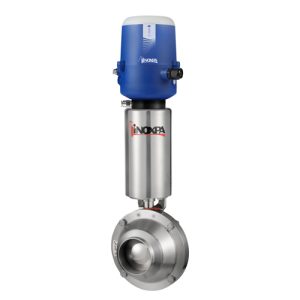 It works with a hygienic ball valve mechanism. The globe is inserted into the valve body and aligned with a hole. Depending on whether the valve is open or closed, this hole blocks or releases the flow of liquid or gas. The control mechanism usually includes a lever or other mechanism. This control mechanism allows the operator to open and close the valve.
It works with a hygienic ball valve mechanism. The globe is inserted into the valve body and aligned with a hole. Depending on whether the valve is open or closed, this hole blocks or releases the flow of liquid or gas. The control mechanism usually includes a lever or other mechanism. This control mechanism allows the operator to open and close the valve.
Hygienic Ball Valves are designed to provide high standards in terms of tightness and reliability. Additionally, it was designed with easy cleanability and ease of maintenance in mind. These features have made their use widespread, especially in industries where the cleanliness and quality of the liquid or gas is critical.
Hygienic Ball Valve Usage Areas
Hygienic Ball Valves have a wide range of usage, especially in industries where hygiene is critical. These valves are ideal for controlling the flow of liquids or gases and meeting hygienic standards. Here are some of the common uses of Hygienic Ball Valves:
- Gıda Endüstrisi: Gıda üretim tesislerinde, süt işleme tesislerinde, içecek işleme tesislerinde ve diğer gıda işleme tesislerinde sıvıların akışını kontrol etmek için kullanılır. Örneğin, süt, meyve suyu, bira, içme suyu gibi ürünlerin üretiminde kullanılabilir.
- Food Industry: Used to control the flow of liquids in food production plants, dairy processing plants, beverage processing plants and other food processing facilities. For example, it can be used in the production of products such as milk, fruit juice, beer and drinking water.
- Pharmaceutical Industry: Used in pharmaceutical manufacturing facilities, drug formulation and other drug processing applications. Hygienic valves are required for precise dosing and transfer of liquid substances during the production stages of pharmaceuticals.
- Cosmetic Industry: It is used in the production of cosmetic products and the processing of products such as creams, lotions and shampoos. Hygienic standards are also very important in this industry and the material structure and cleanability of valves must meet these standards.
- Biotechnology Industry: It can be used in biotechnology laboratories, cell culture, fermentation and other biological processes. Hygienic valves are especially important for sterilizing and transferring microorganism cultures.
- Drinking Water and Treatment Facilities: Used in drinking water treatment facilities, process water processing facilities and other water treatment applications. The hygienic properties of valves are important to maintain the quality of water and ensure hygienic standards.
- Veterinary and Livestock: Can be used in animal feed production facilities, veterinary practices and other industrial applications related to animal health. In these areas, hygienic valves are important to protect animal health.
Hygienic Ball Valves are generally preferred in any industrial application where hygiene is critical and liquid or gas flow needs to be controlled. Therefore, it is widely used in many different industrial sectors.
Related products
2-Ways Plug Cock
3-Ways Plug Cock
Air Operated Valves (Pneumatic valve)
Diaphragm Valve
Hygienic Butterfly Valve
Safety Vent
Vacuum Valves
Vacuum valves are valve installed in the supply or exhaust line of a vacuum system. Vacuum control valves are a valve designed to maintain atmospheric pressure within the tank while the tank is being filled or emptied. The system is sealed until overpressurized. It is set to expel excess gas when a set pressure threshold is exceeded.
